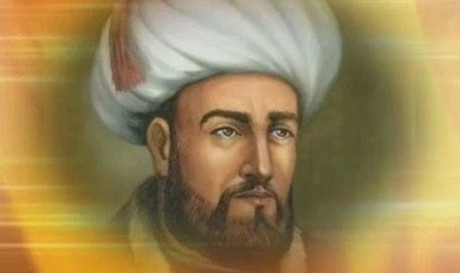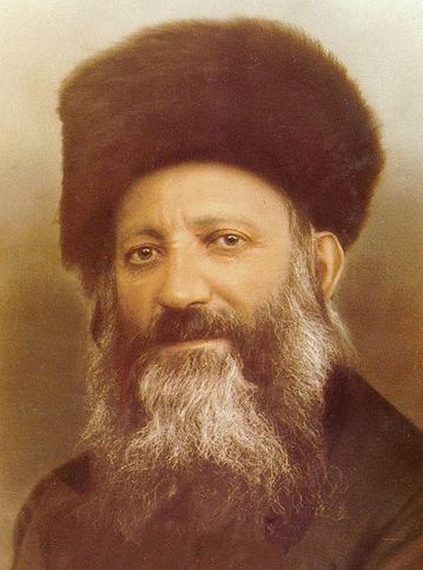These are not great times for Jewish-Muslim relations. In many ways, these are not great times for religion as such. There is so much bad religion around that we sometimes wish it didn't exist. No religion has a monopoly on bad religion, but a variety of circumstances contributes to the view that Islam is in a particularly bad way and therefore relations between Muslims and members of other faiths are particularly tense. Add to this how political Jewish/Israeli relations with Muslims are, and one is forced to admit that religion is more of a liability than a benefit.
It need not be so. It was not always so. Moments like holy times, such as the month of Ramadan and the concluding Eid el Fitr, are moments when we can imagine alternatives. To do so, we must often go beyond the example and teaching we see around us. Be assured, if religion has become politicized and violence is one of its primary manifestations, it is no longer religion as something exalted and inspiring. It is religion gone awry, set to the height of spiritual dwarfs, whose small mindedness, ego and group identity have taken over the higher spiritual vision that a religion can carry.
Where can we find the great vision? Among the giants, the great ones of all religions, individuals I call "religious geniuses". These are the finest exemplars a religion can produce, men and women of great vision, creative mind, open heart and the capacity to speak across religious traditions. All our traditions have such religious geniuses. If we seek to heal the ills of today's religious reality we must turn to the religious geniuses and seek an alternative testimony to how religion can be lived and how it can transform our lives for the good.
Let us consider two religious geniuses, one Muslim and one Jewish, and let us consider what a wonderful and inspiring conversation they can have with each other across time, and how we can be enriched listening to such a virtual conversation. Let that imaginary conversation be our blessing for the Eid and the perspective that we wish holy time to open unto.
Imam Abu Hamid Al Ghazali was an 11th century teacher, who sought to bring about a spiritual revival within Islam. In his "Inner Dimensions of Islamic Worship" he develops a theory of fasting that points to total inner transformation. Fasting is an internal reorientation, that affects not only the stomach, but also the eyes, ears and mouth, all of which are consecrated to God, leading to the sanctification and transformation of the person.
As I learned this subject with my Muslim teaching partner, Dr. Timothy Gianotti, he commented:
"As Muslims celebrate the conclusion of the sacred month of fasting, forgiveness, and transformation, and return to their normal routines, Imam Ghazali's counsel regarding the inner aspects of the fast encourage us to return to our regular lives with an altered consciousness. We come back to the world with a renewed sense of the sacredness of the gifts of our abilities, so that we live and act with transformed, mindful, illumined intentions and look to God in all we do. The fasting of the stomach comes to a close, but the work of inner fasting and transformation continues within ourselves and within the world."
Let us now turn to a Jewish religious genius, Rabbi Avraham Isaac Kook, a 20th century figure that my Muslim friend Timothy considers to be one of his spiritual guides, talking to him across our religious difference. Rabbi Kook's theory of penitence, teshuva, speaks closely to the transformation of consciousness that is at the core of teshuva. Penitence is not simply correction of actions; it is a return to the greater vision of the wholeness and totality of reality and how it is grounded and lived in God. Consider the following quote:
"Through penitence all things are reunited with God; through the fact that penitence is operative in all worlds, all things are returned and reattached to the realm of divine perfection. Through the thoughts of penitence, its conceptual implications and the feelings it engenders, the basic character of all our thinking, our imagination and our knowledge, our will and our feeling, is transformed and placed again within the context of the holy order of the divine (Lights of Penitence, Chapter 4,2)."
The two authors lived worlds and centuries apart. But they share the same vision of human transformation and how our mundane lives can be lifted up to God and lived in a divine context. The commonality of vision is not accidental. I propose that all religious geniuses, whatever their tradition, are able to speak to each other and understand each other, despite whatever differences there are in their tradition and in their particular teaching. The differences, that lead some members of our faiths to fight one another, would be seen by them in a perspective that is unitive, and that makes room for study and inspiration across traditions. We have the choice of living the religion of the dwarfs or the giants; the religion of the men of closed mind and heart or of the religious geniuses.
I would like to extend to my Muslim brothers and sisters on this day of the Eid the wish that they, as well as us Jews, always follow the ways of our religious geniuses, and live our religions as ways of truly coming closer to God. When that perspective prevails, we will be able to discover a deeper peace and commonality that will allow us to address our day to day difficulties in another light.

